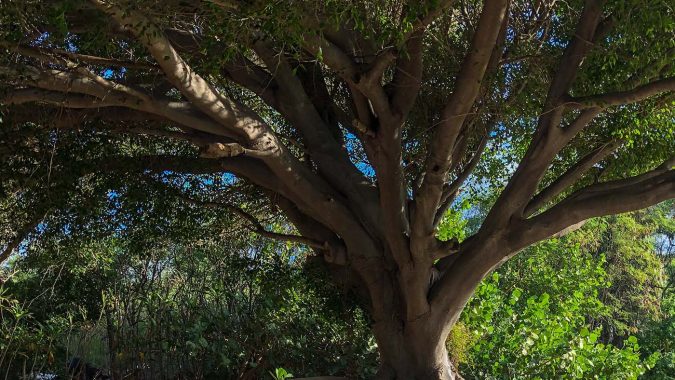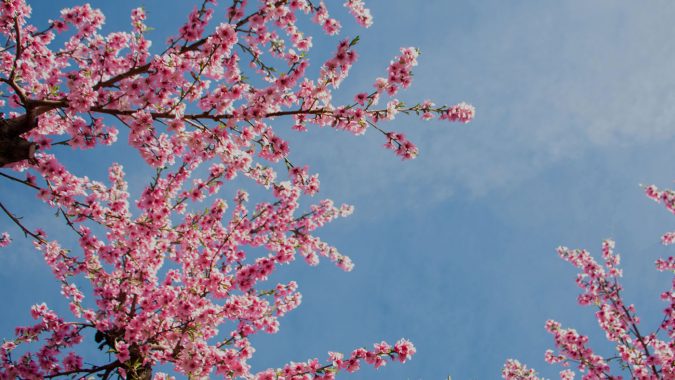
Dharma Master Cheng Yen often reminds Buddhist practitioners that as they engage in spiritual cultivation and transform themselves, they can also lead others to the Dharma, thus being of tremendous benefit to them as well. However, to do so, one must have the proper mindset and behavior:
We must have deep faith and understanding in the Dharma and its principles if we are to realize the meaning behind its teachings. Then, we should mindfully teach it to others in such a way that they will understand it, so that they can comprehend it, believe in it and put their faith and vows into practice.
Yet, as promoters of the [Dharma], if we want others to believe in it, understand it and put it into practice, then we, who teach the Dharma, must set an example for others. By practicing what we preach, we can help others accept the Dharma and take it to heart. When people who spread the Dharma are sincere, people will accept it with faith and understanding.
So how are we to serve as a role model as we spread the Dharma? Master Cheng Yen points to the Lotus Sutra which provides guidance:
Those who spread the sutra must take the ‘Three Directives’ of compassion, patience and emptiness as their model. In actualizing the Six Paramitas, we must be led by compassion. In facing all conditioned phenomena, we must take patience as our foundation. In teaching the Dharma, we must be rooted in selflessness. If we are able to practice the Three Directives, we can transform ourselves and benefit others, perfecting all our practices.
Passage From the Lotus Sutra
Master Cheng Yen teaches us that with compassion, the first of the three directives, we’ll naturally strive to bring joy and happiness to others. Yet this must be done with a deep understanding of the Four Noble Truths, which show how craving and desires are the cause of suffering.
Too much wanting turns into greed. If we are greedy and discontent, how will we ever find happiness? Genuinely happy people are those who know how to be content. Contentment always brings happiness.
Master also reveals another way to guide people toward happiness, which is to take them to places where they can witness human suffering. Seeing how others are struggling will help them recognize their own blessings. And as they take action to help those in need, they’ll see people liberated from hardship, which brings joy.
Those who help relieve the suffering of others are even happier than those who receive the help. This is why we say, “Helping others is the root of happiness.”
In devoting ourselves to serving those in need we are then “exercising compassion,” continually “awakening loving-kindness,” and set an example for others.
When we see others suffering, it’s like we’re suffering ourselves. We can’t bear for sentient beings to suffer, so we go among them with great compassion to serve those in hardship. This is what it means to be a role model [and] set an example.
The next directive indicates that we also need patience and endurance on the path. Master Cheng Yen explains that we must be able to endure the endless stream of cravings that plagues us as human beings, being mindful of how they contribute to our suffering. We must also patiently contend with differing views, and can’t be fixed on and attached to a personal standpoint.
In this modern era, in today’s society, the world is full of turbidity, afflictions and irresolvable problems. The Buddha-Dharma is wondrous medicine for the world. So, those of us who teach the Dharma cannot confine ourselves to our own personal views and prejudices which can naturally give rise to conflicts and arguments. We must broaden our minds [and] always patiently accommodate one another.
Master further explains that according to the three directives given in the Lotus Sutra, as we model and teach the Dharma with compassion and patience, we must do so with an understanding of emptiness as well. In his awakening, the Buddha understood then taught that, “All phenomena arise interdependently with no nature. Thus their essence is empty.”
Things are dependent on the convergence of various [conditions] to arise. There is no independently existing nature; [causes and conditions] must converge to give rise to [any and every] substance. When these causes and conditions disperse, there is just emptiness. There is nothing left. This is the “view of emptiness.”
In contemplating this view, we can come to realize how even our very “self,” which we ignorantly so cherish, is based on causes and conditions, thus empty of inherent existence. This realization will enable us to become “rooted in selflessness,” something necessary when teaching the Dharma. It will also motivate us to progress on the path so we can free ourselves and others from the ignorance at the root of suffering.
The three directives of compassion, patience and emptiness also support the actualization of the Six Perfections (Paramitas in Sanskrit). As we cultivate the virtuous practices of the first five – generosity, precepts, forbearance, diligence, meditative concentration – we’re purifying ourselves, aiming to “transform consciousness into wisdom” (wisdom being the sixth paramita). And, as Master Cheng Yen points out, in “actualizing the Six Paramitas in all actions,” compassion and patience are still foremost:
If we are to serve others by giving unconditionally, compassion must come first. And, “In facing all conditioned phenomena, we must take patience as our foundation.” We must overcome every hardship with patience. No matter what it is, no matter what conditioned phenomena we face, we must overcome them all. We all understand the meaning of “conditioned phenomena” as that which is contrived [and essentially empty]. So, we must have patience with phenomena.
Master Cheng Yen repeatedly highlights the importance of sincerity and diligence on the path, and how we must make great vows such as those of bodhisattvas who out of pure, altruistic compassion, take action to help others. The bodhisattva path of going towards suffering to relieve it actually leads to “Dharma-joy” and a chain effect of benefits:
Giving is what fills us with Dharma-joy. Because we feel joyful, we want to share this method. The more we do, the more joyful and confident we become. The more joyful we are, the more willing we are to give; this is “joyful cultivation.” As we apply the Dharma among people and in our daily life, we become more and more willing to pursue the principles of the Buddha-Dharma. This is “joyfully cultivating all virtuous practices,” [such as the Paramitas].
This is the spirit that Tzu Chi volunteers model as they venture out into the world to help those in need. In sincerely taking the mindset and behavior prescribed here to heart, they transform themselves while becoming a powerful inspiration to others.
To illustrate, Master Cheng Yen once shared a story from a flood disaster relief mission in Myanmar, that led volunteers to remote villages to distribute grains, fertilizer and other supplies. As is typical, the volunteers recounted how the Buddhist Tzu Chi Foundation began with a few housewives saving pennies a day because they wished to help others.
One villager, Umya Aye, and his wife, were particularly moved by Tzu Chi’s history and the power of intention it shows. Inspired by how the aid they were receiving was made possible thanks to the kindness and generosity of strangers from far away, they made the same aspiration to be of aid to others in their time of need. Although they were poor and life was hard, they began saving 50 Myanmar Kyats a day (roughly 3 US cents).
As Tzu Chi continued providing aid, volunteers were constantly returning to the village, and the couple planned to donate the money once they’d saved enough. However, after an abundant harvest, the volunteers were confident that the villagers no longer needed their support, and stopped coming. It took seven or eight years before Umya and his wife would see Tzu Chi volunteers return to their village.
They were very joyful and immediately said, “Finally, we see the blue and white uniforms of Tzu Chi’s volunteers again! [Back then], we formed the aspiration to start saving money, 50 kyats per day. We continued even though we didn’t have the chance to donate the money. Please … If you have time, you must visit our home!”
When Tzu Chi volunteers came to the house, the couple brought out a plastic barrel filled with bills that were flat and crisp. It turns out that saving the money was only part of their loving intention and effort, as Umya’s wife explained:
Since we formed the aspiration to do good deeds, even when we encountered difficulties, we never used this money. But sometimes if it rains, it gets really damp and humid [so the money could] get moldy. So, sometimes when the sun is out, we take the money out and dry it in the sun. [And] when it rains constantly and the sun isn't out, we take a clothes iron and iron each bill. So, every bill has been dried by the sun and ironed by hand. So, we have kept this money nice and clean.
Myanmar Aid Recipient
This story truly illustrates what it means to make a great vow and follow through.
Although it had been a long time [since Tzu Chi volunteers were there], they still put 50 kyats away daily. In truth, through this process, they gathered tens of thousands of dollars! Even in times of difficulty, they did not spend this money and their aspiration did not waver. This is truly no easy feat.
And so, while these humble farmers were inspired by the spirit of Tzu Chi as exemplified by its volunteers, we in turn can be inspired by their pure aspiration and disciplined resolve to help others.
All of us, especially as practitioners with decent and comfortable lives, should have respect for them. We must aspire to learn from them. [Such] “profound and earnest aspirations” are our fundamental duty.
The sections in italics are transcribed excerpts from Dharma Master Cheng Yen’s teachings on the Lotus Sutra.
































